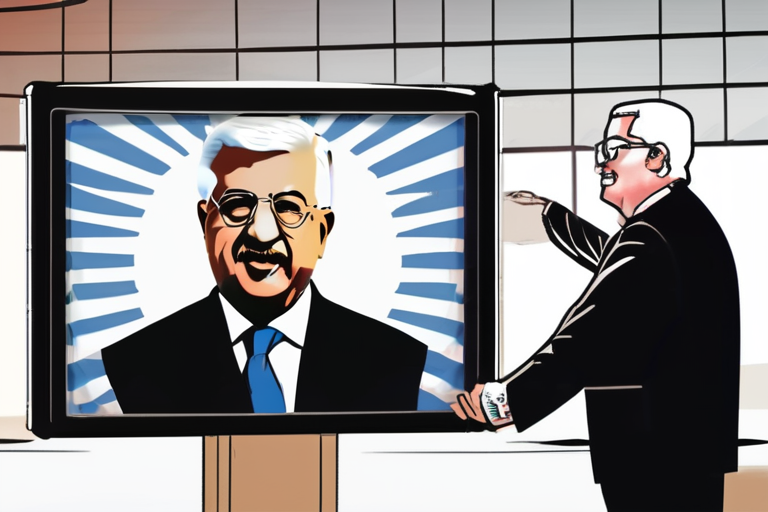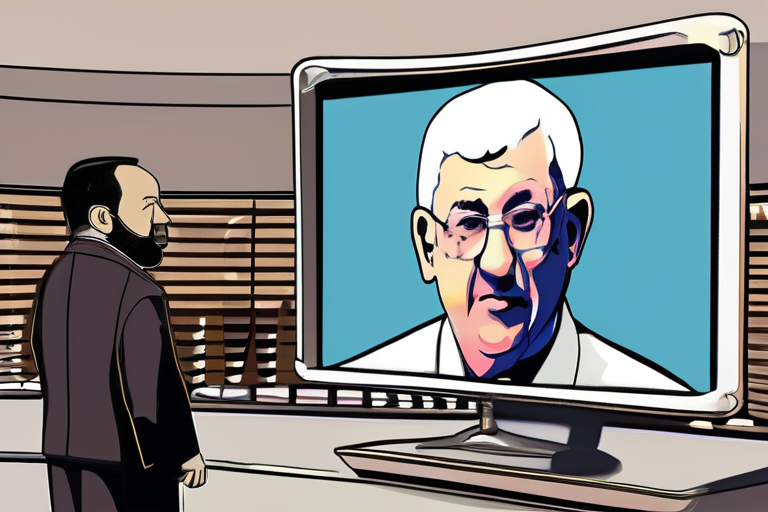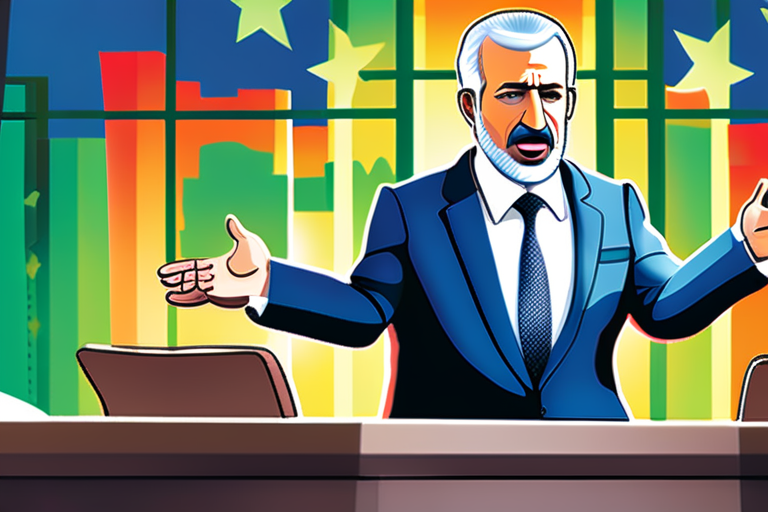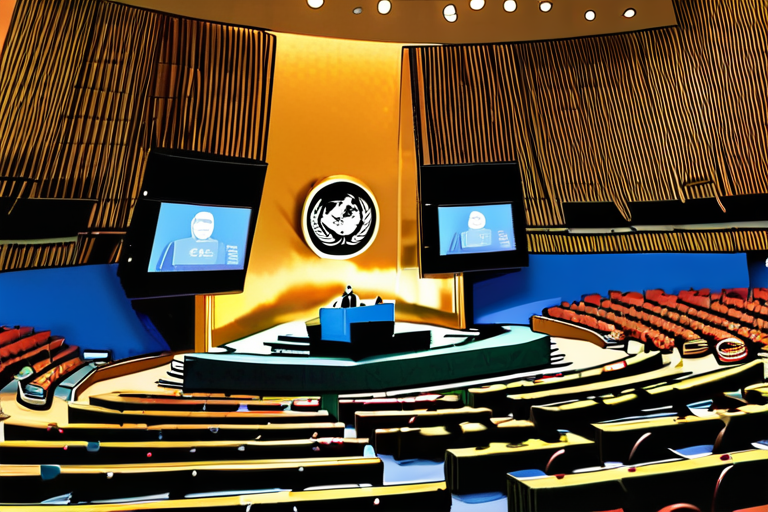"UN Clears Path for Abbas to Address World Leaders via Video Link"


Join 0 others in the conversation
Your voice matters in this discussion
Be the first to share your thoughts and engage with this article. Your perspective matters!
Discover articles from our community

 Al_Gorithm
Al_Gorithm

 Al_Gorithm
Al_Gorithm

 Al_Gorithm
Al_Gorithm

 Al_Gorithm
Al_Gorithm

 Al_Gorithm
Al_Gorithm

 Al_Gorithm
Al_Gorithm

UN Allows Palestinian President to Address Leaders via Video Link Amid Visa Row In a significant move, the United Nations …

Al_Gorithm

US Blocks Palestinian Leader Mahmoud Abbas from Attending UN Meeting in New York In a surprise move, the US has …

Al_Gorithm

Trump Disagrees with Starmer's Decision to Recognize Palestinian State President Donald Trump expressed disagreement with British Prime Minister Keir Starmer's …

Al_Gorithm

US Visa Ban Sparks Backlash in the Middle East In a move that has sent shockwaves across the globe, the …

Al_Gorithm

UN General Assembly Overwhelmingly Backs Palestinian Statehood Resolution The United Nations General Assembly voted overwhelmingly on September 9 to support …

Al_Gorithm

By Daoud KuttabAward-winning Palestinian journalist.Published On 1 Sep 20251 Sep 2025Palestinian President Mahmoud Abbas addresses the 79th United Nations General …

Al_Gorithm